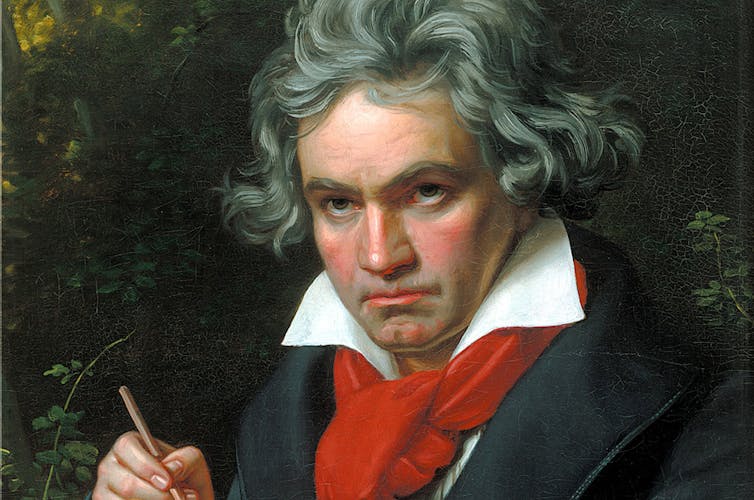Pianist Ran Jia: The next superstar rising out of China?
Elegant, poised and deeply musical Ran Jia has brought a new freshness to the Franz Schubert piano sonatas, a phenomenal achievement considering how often they have been performed by the greatest pianists of the past 75 years. The press in Germany, where she played all eleven works in a four-day marathon last spring, christened her “the challenger” against Daniel Barenboim, who was scheduled to appear in Berlin a few weeks later.
Ms. Jia rejects such talk of competitive striving. “My dream is simple,” she told me in an interview, “to share my musical inspiration deep down in my heart with the audience …” To her, Schubert’s music “dances between our world and heaven”.
Her self-deprecating persona comes as a welcome change in the face of the flamboyance of other young Asian players seeking to distinguish themselves through hair-styles or piano-bench paroxysms.
She may well be the next Chinese superstar, a versatile player who thoroughly understands her music and performs it for us without the distracting excesses of Lang Lang and Yuja Wang, among others.

Ran Jia by the author, Michael Johnson
One American critic noted that onstage she simply and calmly “looked as though she were thoroughly enjoying herself, frequently smiling at Schubert’s more engaging nuances”.
I asked her about the growing criticism of young pianists who place technique above musicality. Not wishing to join the polemic, she agreed however that “music is not only related to the physical action but also the knowledge, emotion and the depth of the spirit behind it”. She brings all these crucial elements to her playing.
I have spent the past few days listening attentively to her latest CD (Ran Jia Schubert, Sony Music) a pairing of Sonata No. 19 in C Minor and Sonata No. 16 in A Minor. As a bonus, she includes “Three Preludes for Solo Piano” by her well-known composer-father (also an accomplished painter), Jai Daqun.
Ms. Jia’s Schubert is every bit a match for the greats who preceded her. She handles the virtuoso challenges and mood changes in, for example, the four-movement No. 16 in A minor, in the most natural, effortless singing manner and delivered the full range of human emotions straight into the heart of this listener.
In this video she discusses her love of Schubert and demonstrates her exquisite playing.
Ms. Jia has already built the foundations of a long-lasting career, with debuts at the Shanghai Conservatory of Music and Alice Tully Hall, Lincoln Center, New York. As she explains in our interview (below) she became a multicultural musician by growing up in a musical household. Her father is Senior Professor of Composition and Theory at Shanghai Conservatory. He is regarded as China’s leading composer and has worked in various musical styles, including traditional Chinese music.
A bonus on the new CD is the world premiere recording of his Preludes. Most captivating is his brilliant variation swirling around Schubert’s A Minor sonata and placing it very much in the 21st century. After absorbing his daughter’s pure Schubert, this contrast is chillingly beautiful.
INTERVIEW WITH RAN JIA
Q. Your four-recital cycle of Schubert the eleven piano sonatas in Germany last spring left critics in awe. They called you an “astonishing” artist, a “piano poet”. How has that success changed you?
A. I would say it changed me as a pianist. After this almost impossible mission, I suddenly found peace and freedom in myself as a musician.
Q. You are in very good company, devoting so much of your musical talent to Schubert. The competition could not be stronger – Brendel, Schiff, Perahia, Kempf, Lupu, Richter, Barenboim, among others. What drew you into this stratosphere?
A. Schubert has been my favorite composer since I was a teenager. Ever since I played his music the first time, I have felt a unique connection. All his music has become my mission in my musical life. I don’t feel there should be any competition between the interpreters as you mentioned in the question. For me, my dream is simple, to share my musical inspiration deep down in my heart with the audience, and to diligently dig into Schubert’s music as much I can.
Q. Will you really spend the rest of your life discovering Schubert’s “spiritual delicacy and profoundness”, as you have written? Is your ambition to become the definitive interpreter of Schubert?
A. Of course I will spend the rest of my life discovering Schubert’s music. For more than a decade I have continuously studied his pieces. I feel his music is still underrated compare to his genius -- he is so much more than just a songwriter (even though the songs are amazing!) The boldness of his harmony is absolutely stunning and he uses music to express his philosophy of life.
Q. You have said that you moved from your native China to Europe to better understand the Germanic culture of Schubert. In what way did this help your interpretations?
A. The language, the culture, the atmosphere, those are the foundations for better understanding his background.
Q. What is Schubert’s secret in drawing the tragic and painful strains from major rather than minor keys?
A. True, major brings a brighter feeling than minor, but Schubert’s use of the key changes make me feel that major is more sad than minor because of the way he uses the major sounds seem like a beautiful dream that will never come true.
Q. What are you preparing now in repertoire? Do you plan more ensemble work?
A. I am at the moment preparing a lot of repertoire. I have some interesting projects, for example all the Beethoven concertos, and a Schubert cycle in China in the second half of the year and some trio concerts (mainly transcriptions) with piano, saxophone and violin.
Q. Your father, the distinguished Professor Jia Daqun, is perhaps the ultimate cross-over East-West composer, combining some Chinese sounds with vigorous Western-style contemporary music, as he does in “Melodies from Sichuan Opera” on your new CD. Has his musical culture always combined a balance of the two?
A. Yes, he wrote a lot of interesting chamber works with the combination of Chinese folk melody and Western modern composition technique. He has recently been commissioned by Yo-Yo Ma for a string quartet for the Silk Road Project.
Q. In your own musical life, did you have to move from the Asian pentatonic to the Western heptatonic scales? If so, did you make this adjustment gradually?
A. I never had to move because music of all kinds was always just naturally there with me. I started studying piano when I was three and half years old. Because of my father, I heard a lot of music in different periods, of course including Chinese folk music. I didn’t need to change anything.
Q. Are you still interested in Chinese music or have you definitively crossed over?
A. I don't think you can speak of crossing over in this context. It is not a question of interest in Chinese music, because this music is a part of me. I am Chinese :).
Q. How should we understand the current explosion of popularity of Western music in China? Some observers think it has become a status symbol to love Western music, like the “Gucci shoes of the music world”, as one pianist has called it. How true is this?
A. First of all, there are a lot of Chinese, so it might seem like it’s an explosion of popularity of western music. Second, the competition in the schools in China is enormous, the teenagers usually have to have several interests besides their normal subjects of study. And music became very popular because it can cultivate one’s feelings.
Q. What drives Asian children to over-practice, sometimes 12 hours a day. Don’t their results sometimes favor technique at the expense of musical understanding? Are Asian piano students more driven to succeed or are Western children going soft?
A. Asian children work very hard and they want to be good in any area they study, whether in music or other subjects. It’s important that at a certain age they build up a good technique through a lot of practice, but in my opinion, it has become very critical because music is not only related to the physical action but also the knowledge, emotion and the depth of the spirit behind it. I think we should not see a music career as ‘succeeding’ but rather as ‘devoting’ and ‘growing’, or we lose the essence of being a musician.
This article is brought to you by the author who owns the copyright to the text.
Should you want to support the author’s creative work you can use the PayPal “Donate” button below.
Your donation is a transaction between you and the author. The proceeds go directly to the author’s PayPal account in full less PayPal’s commission.
Facts & Arts neither receives information about you, nor of your donation, nor does Facts & Arts receive a commission.
Facts & Arts does not pay the author, nor takes paid by the author, for the posting of the author's material on Facts & Arts. Facts & Arts finances its operations by selling advertising space.




















